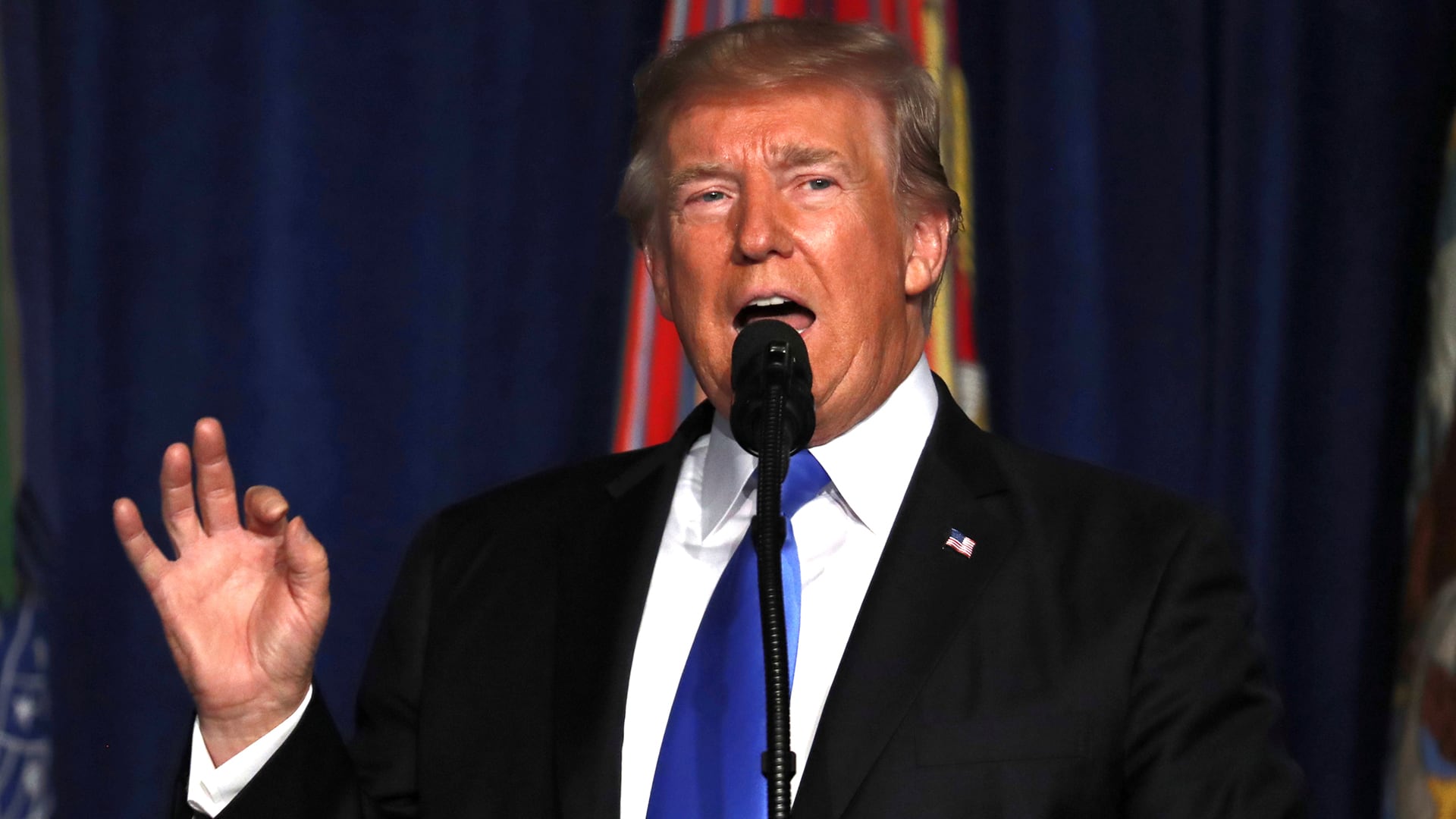WASHINGTON – When U.S. President Donald Trump took the stage Aug. 21 to lay out his new strategy for Afghanistan, he made it clear that a key part of the policy will be pushing Pakistan to change its ways.
Pakistan, Trump said, often provides “safe haven to agents of chaos, violence and terror,” later adding that “we have been paying Pakistan billions and billions of dollars at the same time they are housing the very terrorists that we are fighting. But that will have to change, and that will change immediately.”
But the relationship between the U.S. and Pakistan is a two-way street, and the Pakistanis have something the U.S. and its allies view as vital – control over supply lines for materiel into Afghanistan, known as the ground lines of communication, or GLOC.
A senior administration official, speaking on background, acknowledged that the GLOC is “very important” to American interests, but pointed out that there are alternatives.
In those cases, “We’ve had to rely more on Northern Route,” the official said, referring to a series of routes that run through Turkmenistan, Uzbekistan and Tajikistan. “Those are certainly more expensive and not the best option, so we do count on those lines of communication through Pakistan.”
RELATED

The U.S. has found out just how much more expensive relying on a combination of the northern route and airlifting was between Nov. 2011 and July 2012, when Pakistan shut the GLOC routes down following an incident where 24 Pakistani soldiers were killed by NATO forces along the Afghanistan-Pakistan border.
Reporting in 2012 revealed that costs for getting needed supplies into Afghanistan went from $17 million a month to $104 million a month, a significant upcharge even by Pentagon budget standards.
That cost-imposing cool is the “enduring point of leverage” Pakistan has over the United States, says Alice Hunt Friend, an Obama-era senior adviser to the deputy undersecretary of defense for strategy, plans and forces and country director for Pakistan, now with the Center for Strategic and International Studies think tank.
“Because this relationship has so many layers, and because we are interdependent in a lot of ways, there is usually mutual interest in making all the logistics run smoothly,” she said. “On both sides, the U.S. and Pakistan, we just like to remind each other that ‘hey, you need me.’”
However, the decision by the Trump administration to send only a limited number of troops – reportedly around 4,000 – means less supplies are needed today than in 2012, notes Patrick Cronin, senior director of the Asia-Pacific Security Program at the Center for a New American Security.
When the GLOC was shuttered, there were roughly 63,000 U.S. troops in Afghanistan, according to a Congressional Research Service report. Today, there are around 12,000, and even fi that grows it is unlikely to get anywhere near the 2012 levels.
“If we were surging to 100,000 troops and doing nation building, Pakistan could really slow that process down” by closing the lines, Cronin said. But, “if we’re just trying to whack terrorists and train afghan soldiers, I’m not sure how big those supply lines need to be.”
This doesn’t mean Pakistan won’t still look to apply pressure if they feel the need, but Friend notes that any such move won’t happen until Pakistan has had a chance to really sit down with U.S. officials and hash out exactly what Trump meant in his speech.
The countries involved “seem so to be saying ‘that speech was vague enough that I don’t want to make any sudden moves,’” she said. “Which might have been by design and might have been a clever way to poke Pakistan in the eye just enough to send a signal without being specific, so we can hammer out details in private.
“The details will unfold over time, and we’ll have to keep putting the pieces together.”
Tara Copp with Military Times contributed to this story.
Aaron Mehta was deputy editor and senior Pentagon correspondent for Defense News, covering policy, strategy and acquisition at the highest levels of the Defense Department and its international partners.





